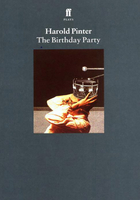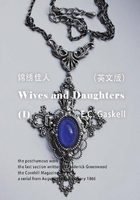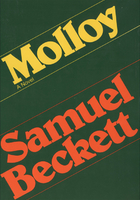As predicted, the story spread like a fast-moving forest fire. Internet stories were lurid and speculation rampant.
"Presidential Enemy Found Dead. Suicide or Murder?"
By the next day, Fiona felt certain, the story would gather more traction and dominate every medium. No print journalist or television personality could resist the temptation to speculate that an administration-inspired conspiracy might have been perpetrated. The suggestions were blatant. Administration defenders ridiculed the idea. The President remained silent. As had been expected, a "higher authority" was monitoring the Eggplant. And as always when such situations arose, his anger escalated, he became more secretive and less forthright with his superiors, doling out information in his own time.
Following procedure, Fiona had broken the news to Burns' wife while Izzy covered the news media. Next-of-kin notification always took precedence in incidents like these. It was early evening by then.
Sally Burns was an attractive woman, early forties, with one teenage daughter living at home and the other a sophomore at Harvard. Although obviously stunned and in disbelief, she remained controlled throughout the process, as if she were used to restraint. This was a woman who was good at managing her fa?ade. She did not break down when she identified her husband's body, although the color had drained from her face and her lips trembled. A passive-aggressive type, Fiona decided. One of those cold, nose in-the-air, blonde goddesses that Fiona despised from her school days, Mrs. Burns was dressed in the uniform of her ilk: cashmere cardigan open over color-coordinated sweater with a string of pearls around her neck. Fiona had never met her before. She was a real estate broker with a prominent firm that dealt in upscale housing.
Fiona drove her back to the family home near Chevy Chase Circle, an early vintage brick colonial style house; low key, tastefully decorated, and upscale. Mrs. Burns' teenage daughter Lisa, a tall, beautiful girl, her complexion ashen, eyes red and swollen, her blonde hair in disarray, fell into her mother's arms as they entered.
"I'm sorry, baby. It's so awful," Mrs. Burns said soothingly, looking up at Fiona, almost apologetically, her hollow look emphasizing her helplessness.
"Daddy," the daughter blurted, overwhelmed by her grief.
"I know, sweetheart. I know."
"I want daddy."
Leaning on her mother, crying uncontrollably, she was slowly guided upstairs.
Fiona roamed the living room and paneled den with ceiling-to-floor bookcases, noting that everything seemed in its place, expensive, comfortable, carefully chosen and coordinated, hardly an example of a rabble-rouser. There were plaques, awards, and generational family pictures of happy, athletic, successful people. This was not, Fiona decided, the home of a suicidal man. There were a number of awards also given to Mrs. Burns for her real estate sales efforts. She was apparently quite accomplished.
Twenty minutes later, Mrs. Burns came down, her pale face scrubbed and her hair neatly brushed. She had changed her clothes and was wearing an olive turtleneck and beige slacks. Fiona noted that the combination brought out the green tint of her hazel eyes.
"Lisa doted on her dad," Mrs. Burns said, sucking in a deep breath. "She's devastated. It's all so terrible." A tiny sob escaped her.
"It's always harder on the children," Fiona said, leaving out what from her own experience she had learned would be a temporary phase. Children on the whole recovered from the loss faster than a spouse.
Mrs. Burns slumped into a leather wing chair. When the telephone rang, she showed her annoyance, got up, disconnected it, and returned to her chair. The brief stab of anger seemed to steady her.
"I don't want to hear it," she said with disgust. "All those sympathetic voices. Hypocrites! Most hated his politics. The whole thing is so awful." She sighed and turned away. "I suppose it was to be expected."
"What was expected?"
Sally Burns turned full face toward Fiona. Even in grief, she was a goddess. "Do you have any doubts, Detective?"
"We don't deal in speculation," Fiona said, impatient to begin the serious interrogation.
"Nor do I," Sally Burns said, unable to control a quivering lip.
"Do I understand you rule out suicide?"
"No way," Mrs. Burns said, expelling a deep sigh, obviously fighting to maintain control, as she played with her wedding ring with long, well-manicured fingers. For a long time she was silent, then as if satisfied that she had gained full control over herself, she nodded and spoke in a firm voice. "He would not…." Her nostrils flared as if she was fighting against anger now. She moved her head vigorously from side to side. "No, he would not take his own life."
"You can never be sure, Mrs. Burns. Are there suicides in his family history?"
"Certainly not." She hesitated for a moment as if she were mentally running down the family tree. "He comes from a long line of journalists and writers, all of whom lived to a ripe old age."
"It's a legitimate hereditary marker. It has to be asked," Fiona said.
"Well, it doesn't apply in this case." Then she nodded as if agreeing with her inner voice. "Clearly it has all the fingerprints of this terrible administration. They are capable of anything. They wanted to silence my husband, and they've succeeded."
"At this point, Mrs. Burns, it's a leap," Fiona said gently. She had not yet provided Mrs. Burns with the more intricate and baffling details, like the absence of any identification and the matter of the fake moustache and eyeglasses. Forensics had confirmed that his glasses had been store-bought and with the lowest degree of magnification.
"Who else would be responsible? This most self-righteous, venal, evil administration in history… my husband was its harshest critic. They eliminated the thorn in their side. They want to change our country, make it some socialist backwater. My husband saw it happening." She let out a plaintive involuntary whine, and Fiona noted that she was now digging her nails into her palms. "My husband would not take his own life. No way. He was pushed in front of that train. I'd bet my own life on it."
Fiona let her vent in her restrained manner, her voice steady and firmly emphatic. She was convinced she was stating the facts.
"You know how they do things. They can make it look like suicide. So where is his note? He adored the girls and me. He would never leave any of us in the lurch like this. Not without…." She swallowed, and despite her herculean effort at self-control, she teared up. She stared at Fiona. "Not without saying good-bye."
"It happens, Mrs. Burns. Not all suicides leave a note."
Fiona was instantly sorry she had put it that way. Then it occurred to her that he might have left a message on his wife's computer.
"Have you checked your computer, Mrs. Burns? He might have sent you a note by e-mail."
She shook her head vigorously.
"I checked," she said. Fiona assumed that meant she had taken the time during her absence to open her e-mail. "My daughter's as well. Nothing."
"Are you certain? People often send suicide notes via email."
"Will you stop using that word," Mrs. Burns snapped between pursed lips. "It was not a suicide. Next thing you know, that will be the prevailing doctrine."
"I apologize for the inference, Mrs. Burns. We haven't declared it as such. It could have been a simple accident. We are in the initial phase of our investigation."
"Investigation? Really? I doubt if you will find anything that ties it to them. They are very clever. They will go through the motions, of course, but I have very low expectations about ever getting to the truth of his assassination."
Fiona nodded, more for form's sake. It would be futile to rebut her arguments. She chose, instead, to ignore the allegation.
"Did your husband show any signs of depression? Had his conduct or attitude changed in any way in the last few months?"
Mrs. Burns offered a dismissive smirk.
"Not at all. My husband enjoyed his work and his home. He loved his family. He took out his anger in his columns. He was an idealist. He believed in honesty and transparency, hence his criticism of the President. My husband was a wonderful, talented, articulate man." She paused and grew thoughtful. "A fulfilled man, doing good work. His column, as you must know, was widely read and distributed through the Post syndicate. He turned down thousands for lectures and shunned the role of a talking head on television because he insisted on staying close to home. He would have rather spent his spare time with us."
Fiona watched her signs of defensiveness or hesitation. She was, after all, a real estate broker, in itself a demanding, time-consuming job. "He was at the top of his game. This was not—I repeat—this was not a suicide." Her eyes narrowed as she shot Fiona a glance of reproof. "Definitely without a doubt, he did not take his own life."
Fiona had heard this all before numerous times when delivering the news of a suicide to a family member. Denial was a fairly standard reaction. But in this case, Fiona mused, the woman's adamant denial matched her own speculation, although a conspiracy plot engineered by the President seemed a far more remote possibility.
"Did your husband ever discuss death threats?"
"Really, Detective," Mrs. Burns said, with obvious indignation. "It went with the territory, along with fan mail, which he said always ran twenty-to-one in favor of his point of view. My husband got a kick out of the disgruntled ones. Oh, don't think the White House didn't send emissaries to shut him up, or at the very least, soften his stance. They didn't know my husband. He gave them no quarter. And they have had their revenge."
"Did he have any enemies outside of that sphere? Beyond politics?"
"Maybe. Who knows? We all have enemies for whatever reason. Complain about a bad purchase or a bad meal or some shoddy workmanship that cost you good money, and you've made an enemy. But to be killed by one, that takes real animosity, real anger. And my husband's columns really infuriated them."
"Them?"
"You know what I mean, Detective. Why overlook the obvious? His columns clearly offended the small-minded and the mendacious. Do I have to spell it out? Surely you read him."
"Yes, I did."
"End of story."
"Not for us. For us, it's just the beginning." She paused, observing the woman. Close relatives of victims were always providing their own theories and certainties about how a loved one expired. Fiona continued, "Did he ever do… how shall I put this… personal investigations? Lone, undercover operations?" Fiona searched for words to elicit some hint the woman might reveal that could suggest an explanation for the disguise.
Mrs. Burns looked confused, her brows knitting.
"I don't understand."
Fiona studied the woman's face.
"He was wearing a paste-on false moustache and store-bought, non-prescription glasses—props."
Mrs. Burns scrunched her eyes in disbelief.
"Come now, Officer. That is ridiculous."
"Yes, it is," Fiona acknowledged, "hence my question."
"I can't believe this," Mrs. Burns said, shaking her head as if afflicted with a sudden chill.
"Unfortunately, it is the truth and does require us to find an explanation. Obviously, he was taking some precaution not to be recognized. Where was he going?"
"It makes no sense."
"I quite agree, Mrs. Burns. It does put an odd spin on the situation."
The revelation had taken some starch out of the woman's controlled exterior. For a long moment, she did not respond. Fiona knew it was time to take a more oblique approach. The woman was as baffled as she and seemed lost in confused thought.
"There is some design in this…," the woman began, then shook her head in strong denial. "He would never have done such an idiotic thing." She paused. "Not without good reason."
"How did he commute to the paper?" Fiona asked, following another line of reasoning. A subway station was not within reasonable walking distance of their home.
"Commute?"
"Did he use the subway?"
"Why would he do that? When he went to his office, he drove. The subway is not convenient from here."
"Did he go to his office every day?"
"He rarely wrote his column at home. Yes, he did go every day."
"To your knowledge, did he ever use the subway?"
"Perhaps during the day to get around the city. I have no idea."
"Do you use the subway?"
"Me? Not at all. I am a real estate broker. I take my clients around to see property by car. Why would I use the subway?"
Fiona again caught the whiff of snobbery. Suddenly, Mrs. Burns' eyes glazed as if she was looking inward. Fiona waited through the silence.
"A false moustache and clear glasses? Actually his eyesight was excellent. He had no need for glasses. Perhaps he was doing some undercover work for his column. He did all his own research and no longer had an assistant."
"No longer?" Fiona asked, curious.
"He decided that he did not want an assistant. Charlotte. Charlotte Desmond—very nice, very efficient. She was transferred to someone else at the paper. It apparently worked out very well for her. Anyway, it was his choice. He said he really would prefer working alone. Actually, he liked working alone."
"Perhaps he did not want anyone to know what he was up to? Had he always had an assistant?"
"Ever since he was given the column. Five years, I believe. Then I guess it was about a year ago, he decided that he didn't need an assistant."
A red flag went up in Fiona's mind. It validated a persistent and logical theory. He was involved in something that he wanted no one to know about.
"He gave no reason for getting rid of her?"
"As I said, he told me he preferred working alone. I didn't inquire further nor did I give it much thought. And I was happy that Charlotte landed well. You see, my husband and I have… had… separate careers." She grew silent for a long moment before she spoke again. "A false moustache and useless glasses. It seems so out of character," Mrs. Burns mused. "It's hard to associate Adam with such a…." She searched for a word. "…a prank."
"Maybe so, but it is a fact. And for purposes of absolute secrecy, the tools he used seemed so… if he wanted to disguise himself… ineffective. And there's more."
"More?" Mrs. Burns squinted suspiciously.
"He carried no identification—no wallet, no credit cards, just a bit of cash and a Metro ticket. My partner is checking his office."
Mrs. Burns' face seemed to go blank as if she was having trouble processing the information.
"He… he must have had his reasons," she said, after a long silence.
"That's what we are trying to decipher, Mrs. Burns. Prank does not fit with the circumstances. If his personal effects—the wallet, for example—are not found at his office, we'll have to search your home."
"Be my guest." Mrs. Burns seemed to ponder the idea further. Fiona could almost see the internal wheels at work. "Have you ever considered that it was all part of a plan to make my husband seem ridiculous? Along with his life, they would want to assassinate his persona, make it seem that he was unbalanced and his columns the words of a raving maniac. You're dealing with very clever people, Officer. They will stop at nothing. They all hated him and wanted him out of the way. If I were you…." Mrs. Burns paused, her probing glance focusing on Fiona like a laser. "I'd start at the top. Go to 1600 Pennsylvania Avenue. Speak to the head murderer."
"And you seriously believe that?"
"I do," Mrs. Burns said firmly.
Fiona remembered what Izzy had said at the Eggplant's office earlier: Who benefits? It had a peculiar logic, but it was too bizarre in this instance to take seriously. Reactionary critics were an essential part of the system. Silencing them by murder would be too obvious and na?ve a ploy by a president in power. Of course, it was quite possible that an overzealous supporter might cross the line, a theory not to be discounted.
"Conversely," Fiona said, a sharper edge in her tone, "using your own idea, it could be a deliberate ploy by the opposition to make it look like your husband's death had an administration footprint."
"Whose side are you on?" The tone was deprecating.
"No side, Mrs. Burns." The woman was beginning to irritate her, reminding Fiona how much she detested these types in their younger days. "My role here demands neutrality. The issue for us in homicide—whether a victim's death was caused by accident, suicide, or murder—is to discover the truth. Let the chips fall where they may."
"You are baying at the moon, Officer. You will never solve this case. They are masters of deceit and cover-up. Your path will be strewn with red herrings. You'll see. All doors of inquiry will be slammed in your face."
"Then we will have to find a way to open them."
"Fat chance," Mrs. Burns muttered, turning away.
Despite the woman's outward calm, Fiona sensed she was in deep pain, and she hesitated, trying to summon up the courage to ask the essential question.
"I must ask you this, Mrs. Burns. It will be one of the most-asked questions in the entire investigation. I'll apologize in advance, not only for the question but the timing so soon after this terrible shock." Fiona paused. "Where were you at two-thirty today?"
Mrs. Burns' lips curled in a derisive smile.
"Bravo! So you stand with me, rejecting your silly suicide idea."
"I would be remiss if I had not asked it."
Mrs. Burns grew thoughtful, her eyes narrowing.
"I was showing a house in Georgetown to a Mrs. Jane Harrington," she said calmly. "Going about my business while Adam…." She choked up for a moment, recovered quickly, cleared her throat. "She seemed interested."
Fiona felt a sudden rush of sympathy. She was certain that under the cold fa?ade Sally Burns was devastated.
"It will be all for naught, Officer. They will block you at every turn. My husband was assassinated. There can be no other explanation." She sucked in a deep breath and lifted her chin in a pose of aggressive defiance.
Fiona stood up and handed Mrs. Burns her card.
"If you can think of anything helpful, I'd appreciate your calling me."
The woman studied the card for a moment. She remained seated.
"I shall, Officer Fitzgerald. Not that it will matter."
***
Izzy dumped the contents of a briefcase onto his desk in the squad room. There were a number of plastic bags filled with paste-on moustaches of many shapes and sizes and a dozen or more pairs of store-bought glasses. There was also Burns' wallet, which contained his credit cards, driver's license, the usual, including a metal money clip and a number of keys on a key ring, as well as a thick clasp envelope.
"They were in his locked desk drawer. The editor, Jack Brady, and Donald Grant, the publisher were also baffled, they too, strongly hinted that it was probably his writings that got him killed."
"An assassination plot?" Fiona asked.
"They were not exactly bashful about raising the possibility."
"The spouse accused the President in no uncertain terms."
"The implication was clear at the Post, but they were careful about any specific accusations. Remember the Post supports the President. But they gave the impression that the possibility existed. Brady remarked—if I remember correctly—that the news business was full of surprises. As he put it, 'Hell, surprise is mother's milk to the press.'"
"Did they see the contents of the drawers?" Fiona asked.
Izzy nodded.
"They were as confused as I was. Grant speculated that Burns was on the trail of some big story à la Watergate. Hell, those Watergate hotshots, Woodward and Bernstein, met late at night in a parking garage. Brady said Burns might have been playing gumshoe. He also admitted that he had gotten calls from someone at the Secret Service. Sounded like one of his friends making inquiries. They asked me what I made of it."
"And you said?"
"The usual. Can't comment. That's the Chief's prerogative."
"I'm surprised he hasn't instigated a press conference."
"He will," Fiona said. "He probably wants to be certain of his grounds. With the world watching, he wants more raw meat to throw on the stoop, would be my guess. Note that he's not increasing the force, leaving it to little us. Keeping it tight between us—you move too far out on this one, you get your fingers chopped off."
"I talked to some of Burns' colleagues," Izzy said. "It was obvious that they could not get their head around the idea that the Administration was involved. Although one got the impression that the idea was loose."
"Loose. Nice. It is very loose, the unthinkable," she said.
"At least, that was my intuitive impression." Izzy shrugged and consulted his notes. "Most said that Burns was a loner. Pleasant, but you couldn't get close. Brady did say he talked to him about his column going too far, warned him that too much bile might hurt his credibility, but apparently he did not push too hard. Agreed with Burns that his point of view was the most popular with those readers who were not well-disposed to the President." Izzy looked up from his notes. "Now there was a revelation," he said sarcastically. "They were all pretty upset. I also inferred that few believed the suicide theory."
"Neither did Mrs. Burns. Did you speak to his former assistant?"
It was a base she was certain he had covered. He was extremely thorough and detail-oriented.
"Charlotte Desmond. Worked for him up until about a year ago. Actually nearer ten months. I talked to her. Couldn't understand why she was transferred. She thought she had been very efficient—kept his calendar, did research, fielded his calls. He told her he would prefer to carry on alone. She was quite upset at the time. Made the point that she believed Burns' columns were right on. I got the impression that she liked him a lot."
"Meaning?"
"Respected him for his views. If there was more to it, I didn't see it. She was a bit on the hefty side."
"So? Remember Clinton and Monica," Fiona snapped. "No one can judge the mysteries of attraction."
Izzy snickered.
"No insult intended. I was merely being descriptive. She, too, thought suicide was the wrong conclusion, but then most of those I talked to did as well. Hell, this man was very much admired for his courage and his views. Everyone up there acknowledged that his loss was a blow. Foul play was suspected by one and all, just as we figured."
"Did his former assistant make any comments about the home front? The wife and kids?"
Izzy rubbed his chin and nodded.
"I asked. She said the missus was a high-powered real estate lady, and they seemed to have a good, solid relationship. He doted on his kids."
"Solid? Was she upset by such a characterization, as if she cared? Did she put it that way, Izzy?"
"If you're asking whether she was interested in this man sexually, I didn't see it. You'd have a better take on such things than me. She characterized him as a good family man—had a picture of the whole family, him included, on his desk. Said he carpooled the kids frequently and attended all of his younger daughter's practices and soccer games. The daughter was a student at the National Cathedral School. The older one was away at school—Harvard, like our victim. The cult of the upwardly mobile."
"What else?" Fiona posed, with clear distaste.
Fiona had graduated from Georgetown, a Jesuit institution. Washington was awash with fast-track Ivy Leaguers who looked down at graduates from any other school not in the charmed circle. Even Georgetown, a reputed university, was considered a cut below in the pecking order. She could never quite get over her resentment at their attitude.
She thought suddenly of her current flame, another Harvard man. In her mind, most were snotty frat boys and snobby sorority girls: full of themselves, narcissistic, and entitled. When Larry ridiculed this assertion, she reverted to a cliché. All life is a compromise, she would reply.
She checked herself, remembering that the President was one of the club. She chuckled internally, recalling that some of America's best Presidents had never even gone to college: Washington, Lincoln, and Truman. Unaccountably, her mind had wandered. She forced herself back on track.
"Did he have a Rolodex or a contacts list on his computer?"
"There's the rub, Fiona. His computer was removed."
"By whom?"
"Management."
"On what grounds?"
"They said it was their property."
"We'll have to subpoena it."
"Unless the Feds get it first."
"Wheels within wheels," Fiona sighed.
Izzy glanced at his notes. "Oh yes, he did have a twice-weekly squash game at the Army and Navy Club, always a twosome. His playing buddy was Jack Perkins, administrative assistant to some senator from New Jersey, a Democrat. Bauman, I think his name is. The game is twice weekly in the morning. I tried to get Perkins, left a message on his cell. So far no response."
Bauman had been elected after her father had died, but she couldn't place Perkins.
"I'll follow up," Izzy said. "And you?"
She went into detail about her meeting with Mrs. Burns. "It's a universal appraisal. The Administration pushed the button, offed the guy. Sounds awful when you say it out loud."
As they compared notes, Chief Hodges came out of his office and beckoned them. They exchanged glances and followed him outside into the cool fall evening. He led them to a small square of a park a few yards from the building. After a sweeping glance around the area, he began to speak in a low tone.
Fiona had been through the drill before when investigating a sensitive matter of special interest far from prying electronic ears. Electronic surveillance, like some new virus, had infected everyone in official Washington with galloping paranoia.
"The Feds are on our case," the Chief began.
"How involved?" Fiona asked.
They did not sit on a bench but huddled near a tree standing on a carpet of fallen leaves.
"Big time," the Chief responded.
Fiona was aware that he had contacts throughout the intelligence and federal police establishment, not to mention the formidable black network in government circles on every level. Everyone in her business had a network, and she knew better than to ask the source. Besides, she had her own. One of her former boyfriends was Assistant Secretary of the Treasury, Philip Owens, who had started his career in her father's senatorial office. Theirs was an adolescent fling that went awry, but they had maintained their connection and met frequently on the dinner and cocktail circuit. Besides, Philip's wife Dolly was one of her best friends. Philip, whose grandfather had been in the Eisenhower cabinet, was from a cave-dweller family. In Washington, the cave-dwellers were the permanent upper-tier residents, all formers and used-tos still connected with the power elite, a network of networks.
"Burns was a pincushion for death threats. After a while, he stopped reporting them to management."
"Mrs. Burns confirmed the threats," Fiona said.
"There is a sense," Hodges said, "that his death was connected to his columns."
"A sense, Chief? It's a conviction," Izzy said, not yet tuned in to the Chief's oblique humor. He cut a glance at Fiona, who smiled.
"As I get it," the Chief continued, "the Feds do not want to be seen as upfront on this. They prefer to be informed and will offer occasional leads, but they want us to be the gofers, to keep it low key. They want this to remain a local police matter, and they don't want to be seen as pulling the strings." He smirked as if to say, nobody pulls my strings. No way.
"People will think it anyway," Fiona said, mostly to encourage the Chief's expected reaction.
"Fuck 'em," he responded on cue.
"Ditto," Fiona said, also on cue.
"And I'll bet the media will be pushing hard for a federal investigation," Izzy interjected. The Chief nodded agreement. They both watched him cogitate, waiting for a verbal response.
"The administration will respond by making a big show of this, illustrate their concern for a critic and show their impartiality."
Fiona remembered Vince Foster who had been in the Clinton White House and the flap over his suicide during the early days of that administration. He had shot himself near the Iwo Jima Memorial, and the park police who had jurisdiction investigated the event. It became a cause célèbre for the anti-Clinton advocates, with accusations that the Clinton crowd had deliberately instigated the man's assassination to put the lid on Whitewater, an Arkansas real estate scandal with links to the Clintons. It was a very messy business, which after various investigations resulted in a suicide verdict on Foster's death. The event, like all real and potential scandals in Washington, gradually disappeared from the media radar.
"Comes from the political wishing well," Fiona sighed, "and too much Hollywood conditioning. Yet such oral speculation still plays well in this town."
"People believe what they want to believe," Hodges said, adding, "and offer their spin depending on their political affiliation and whether they're in or out of power."
"Not our bag," Fiona said.
"Only when we see it, smell it, taste it, hear it, touch it, only then, do we say it."
"That's our mantra," Fiona said, turning to Izzy. It was said for his benefit.
"Better be, Officers," the Chief said.
"Burns' disguise is raw meat to the media. The phony moustache, the glasses… and the lack of identification," Izzy said, obviously reacting to his visit to the Post. "Expect a deluge as we speak. Without a doubt, the Post will run with it big time. It's too juicy to keep hidden."
"Sells papers, gets eyeballs," the Chief said. "Way they run their game."
"Are you contemplating a press conference, Chief?" Fiona asked, knowing that Hodges was a practicing limelight hog.
"I'm not sure," he said, growing suddenly silent.
For the first time in memory, he seemed reticent to perform a public show-and-tell. Normally, he reveled in the process, mostly to try to impress his wife and her Gold Coast sycophants with his celebrity status—a futile exercise.
Fiona knew that the Chief was pondering answers to the obvious. Was Burns' death connected to his anti-administration writings? Why the disguise? What was he looking for? Was he tailing someone connected to the administration? Why the lack of identification? This one was a minefield and above all, the Chief did not want to appear vacillating and incompetent.
"What they want most of all is an outcome that doesn't tie the administration to it. For them, that's the bottom line."
"How can we guarantee that?" Izzy asked.
Hodges shrugged.
"Depends on your tolerance for conspiracy theories," Fiona said. "Whatever we come up with will be suspect. It had better be airtight."
"Stay with it," the Chief said. "We need to keep one step ahead of the Feds." He lowered his voice. "Eyes and ears of Big Brother are everywhere. I just wanted you to know that we're being monitored. I didn't have the office swept for bugs. Don't want them to know we know. Keep the talk natural but guarded, although there might come a time when I signal to disengage. Got it?"
"Check, Chief."
It was, of course, a scary notion, hence their little outdoor meeting venue. But it had its logic. There was no way to prevent the implication that the Administration might be running a hit team against its critics, and there were serious believers out there who bought into such conspiracy theories—and not only the fringe media. Soon the blogging world would become operative, and the accusations would go viral. Fiona understood the game. The Administration had to counter in some way. Their hope was that the cops would sign off on suicide, but that was becoming more and more of a stretch.
Later, over coffee at Sherry's, Fiona and Izzy exchanged private theories. Fiona grew thoughtful and tapped a finger on her lips.
"You first," she said.
Izzy took a deep sip of his coffee and squinted into his cup as if his thoughts swam there.
"I read a batch of the man's columns. The President was his whipping boy. He showed zero tolerance for anything the President did—ran roughshod, never ending. Every column was brutal. My take? I doubt the Administration was complicit. That's reaching, but you know where I stand, Fi. I'm not a fan, and I didn't read him before his death. But I don't like having our President maligned." He lifted his hands. "Okay, I know. I'm not letting it stand in the way of my neutrality on this matter. Nevertheless…." He paused and looked up. "It is quite possible that some very offended loyalist could have let his anger get out of hand. You can't deny that the columns could be very motivating for a wildly partisan presidential fanatic."
"Who's denying it? I read him regularly. His stuff did have swaying power. He sure got the juices flowing and came down hard on the President. But a blatant hit by the order of the big man or one of his ardent staffers? No way. It's a leap. A supporting stranger, maybe, but that takes the onus off the Administration."
"Look at us, Fi. We're buying into it?" Izzy asked.
"It can't be avoided," Fiona mused. "What the Administration wants is for us to come up with a conclusion that keeps such an idea at bay. They want suicide or accident to be our official call. That takes them off the hook."
"We better be right," Izzy said. "Or the opposition and President haters will behead us."
"On the other hand, speaking of heads. If we go for suicide or accident, the Eggplant becomes head—get the reference?—of the FBI."
They finished their coffee, paid the bill and waved good-bye to Sherry.
***
As predicted, there was no holding back. After the initial revelation of Burns' demise, speculation began in earnest all over the place. The media bullhorns began their work. Burns could have, might have, and some said should have, been the victim of some government shenanigans—a CIA operation, a special ops buried deep underground, a hit squad of trained assassins. Even the President's loyalists were cagey in their defense against the rumormongers.
Fiona, an old hand at such speculation, had underestimated the deluge by half. The flood of letters and e-mails, many anonymous, grew exponentially. Telephone tips multiplied. Almost all were based on the assumption that Burns' death was related to his columns. Some cried administration hit job. Some protested to such a libel of the President. There was outrage, invective, mean-mindedness, and cries of conspiracy. The media fed the paranoia with its usual loud drumbeat. They loved it.
Fiona and Izzy followed up as best they could, and Hodges assigned a number of clerks in uniform to screen the material from the public, a massive undertaking that offered little in the way of concrete information. All of it was emotional, and there was absolutely no factual evidence offered to buttress the notion that Adam Burns was murdered. Most rejected suicide, and accident wasn't even on the radar.
At first, Chief Hodges, despite the growing media coverage, did not take the speculations and accusations seriously, although he pressed Fiona and Izzy to keep digging and resisted any effort to expand the investigation, worrying that it would create the impression that he was actually responding to the frenzy. But as the pressure mounted from the media, various politicians, and the general public, he had to rethink his public relations strategy.
Normally a publicity hound who loved the limelight, Hodges resisted holding any press conferences. Fiona knew why. He had nothing very interesting to report except that the investigation was continuing, but the questions would be more barbed than usual, saturated with political motives, making him a target for ridicule or worse, a lackey of the powers that be.
"Just cover the bases—facts only—ignore the noise," he urged.
They did. Days went by and the noise only accelerated.















